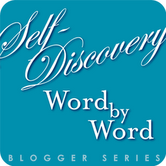 This is the time of year when Santa is making his list, checking it twice (more on Santa and his OCPD ways in a future blog.)
This is the time of year when Santa is making his list, checking it twice (more on Santa and his OCPD ways in a future blog.)Now, with a very few exceptions, I think my friends and family would put me on the Nice List. I buy or make thoughtful gifts; I usually show up almost on time when I'm supposed to be somewhere - sometimes even on time; I'm pleasant and fun at parties, only rarely ending up with a lampshade on my head or puking (I still insist it was food poisoning at that company party and not excess alcohol!) I volunteer, give blood, and donate to charity. Animals and children love me to bits.
And people have said to me, over the years, "Wow, I don't know how you put up with B-F."
I always took that as a compliment, a validation of my Saintly Niceness, that I was supremely kind and understanding and patient with someone who clearly Had Issues.
I'm beginning to understand now, that being too "nice" can cross over into actual harm - not just to Saintly Me, but to the person I'm "being nice" to.
Is the way that you are ‘being good’ to your loved ones actually caring and good? I always thought it was... it's what I learned, in my Family of Origin (otherwise known as a FOO on some chat boards. Fooey on dysfunctional FOO behaviors, I say!)
Or are you involved in codependent relationships that deplete your energy and resources and don’t even help your loved ones to become healthier? Crap, this would be me. I'm depleted physically, emotionally, and financially, and he is not any healthier, as far as I can tell.
She had several paragraph blocks of questions to ask oneself. Here's a couple of them.
Do you make choices in your relationships based on your fear of shattering your loved one’s fantasies? Are you afraid of being seen as pessimistic? When your loved one is on a high of hope or is painting a picture of ‘happily ever after and things are going to change,’ are you scared to burst the bubble? Are you afraid of pointing out that you’ve both been on the rollercoaster many times before, where ‘it’s going to be different this time’ is always followed by the crash and burn of disappointment? Are you afraid of what might happen if your loved one actually faced his or her limitations and unhealthy patterns?
Do you make choices in your relationships based on your fear of facing the reality of what you can and cannot control? Are you unable to accept that ‘carrying’ another person’s pain inside of you, or sacrificing yourself to be everything they ask you to be, does not give you the power to change them or alleviate their suffering? Are you so afraid of your own powerlessness that you cannot let go of trying to fix or change things that are not in your power to change?
Replay bullseye video, above. But, but, but, I want to carry his pain. He's so damaged, so weak, he neeeeeeeeeds me! Not that this strategy is working. He doesn't seem to be relieved of any of his pain, and I'm certainly Not Doing Well. Except for the times (increasingly longer, now) when I distance myself, set and enforce boundaries, and stop trying to Help. Then I'm feeling happy and powerful and able to deal with my own BS. Authentic, centered.
Your first priority in transforming your codependent relationships into healthy ones is to get support to face your fears and to move beyond them to a place of strength and stability. If you are not on your own healthy ground, you are of no help to anyone.
I know, I know. I've even preached this to people myself. Practice, however.... (looking at ceiling and whistling.) I'm getting better.
With proper support, you can develop the ability to prioritize your own wellness as a matter of self-respect and in order to ensure that you have enough reserves to give to others. You can start to see yourself as a human being, which means having needs of your own that sometimes conflict with others’ wants. You can become skilled at setting limits, saying no, and refusing to be pulled into emotional guilt manipulation. You can begin to make careful and creative choices about how to be there for loved ones while also remaining strong in yourself. You can slowly learn to let go of things that are beyond your power.
When she puts it like this, it does seem do-able. I've even done this quite a bit lately, if not perfectly and every single time. Just like anything else - the more you do it, the better you get. Just like doing push-ups, right?
Thought I'd throw a little more 'naughty' in for those intrigued by my title. Besides, I really liked the music mix they're using with Loreena McKennitt's The Highwayman into sampled into it.
Anybody know the other artist or name of the song? How are your push-ups? How goes your journey in learning to set boundaries and be strong for yourself? Let me know.

Editing this post to add a link: December's Magic Word: Authenticity. Found this cool site which is exploring authenticity - which is what this blog (most of my blogs, actually) are about, trying to find the authentic ME under all the layers of people-pleasing, co-dependent stuff.
Katie's Round-up of all peops who contributed to the exploration of Authenticity is here. Make time to read as many as you can - you won't regret it!
 Logging you in...
Logging you in...